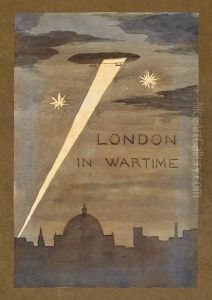Francis Macdonald Cornford Paintings
Francis Macdonald Cornford was not an artist in the traditional sense, but rather a distinguished British classical scholar and poet. Born on February 27, 1874, in Eastbourne, Sussex, England, he was a member of the prominent Cornford family, which included several notable intellectuals. His wife, Frances Cornford, was a poet and a granddaughter of Charles Darwin.
Cornford was educated at St Paul's School in London and later at Trinity College, Cambridge, where he excelled in his studies of the classics. He became a Fellow of Trinity College in 1899 and would remain associated with Cambridge University for the rest of his life. His scholarly work focused on ancient Greek philosophy and the pre-Socratic philosophers, and he is best known for his works 'From Religion to Philosophy: A Study in the Origins of Western Speculation' and 'Thucydides Mythistoricus'. He also wrote on the philosophy of Plato and Aristotle, contributing significantly to the interpretation and understanding of ancient Greek thought.
He served in the British Army during World War I, despite his relatively advanced age, and this experience influenced some of his later work. His poetry, although not as widely recognized as his scholarly writings, has been appreciated for its wit and elegance.
Cornford was deeply embedded in the intellectual community of Cambridge, and his home became a meeting place for many thinkers and writers of the time. He was highly respected for his erudition and his ability to communicate complex ideas with clarity. His work is still studied by classical scholars and historians of philosophy.
He passed away on January 3, 1943, in Cambridge, leaving behind a legacy as a dedicated educator and a sharp-minded scholar who contributed to the understanding and appreciation of classical antiquity.
